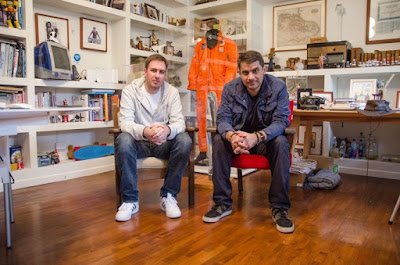 |
| Fuente: Kickstarter |
Founded in
2015 by Jean Clauteaux and James Aschehoug, Uriji Jami is today the first
social network to introduce intrinsically a new temporal aspect in interactions
between people: the future. By linking the past with the future via the
present, Uriji Jami gives to the future the same importance as the past and the
present. The future becomes a positive aspect of the social network and an
integral part of the interactions that will follow.
Uriji Jami
is born from a frustration: the way social networks currently work does not
allow someone to achieve their potential. Starting from its original vision
that ‘life is our main asset’, Uriji Jami places life, our most precious
possession, at the centre of all interactions. Life is a capital. And as any
capital, you must try to make it grow. Growing it by developing everyone’s
potential via the creation of a quality social network, made up of people of
goodwill, users with a particular mind-set who engage right from the start, to
share their dreams and experiences, to make their interactions a reality in order
to fulfil their potential.
How can we
share our dreams and stories? By using a digital tool, an iOS application, that
uses an algorithm taking into account users’ dreams and stories. Each time you
connect to the Uriji Jami app, the algorithm is enriched with every user’s
contributions, thus, the results are never the same. What is actually new in
these interactions is the introduction of the financial aspect: if desired, the
user has the possibility to monetize his expertise. Although, we can always share
our experience for free, giving users the opportunity to have some financial
compensation may enhance the potential of interactions by providing them
credibility, recognizing their value and establishing a relationship of equals
between the parties. Some people may well feel more at ease if, to complete
their project, they have the possibility to 'buy' someone else’s experience.
Our past is
linked to experiences that occurred in a specific geographical context, in the
future Uriji Jami, wishes to bring a spatial and contextual dimension into the
timeline of each user profile. Hence, integrating space in our timeline will be
essential to capture the complexity of the user and to assess accurately his
potential.
Highlighting
the potential of the human being is the essence of Uriji Jami.
You can
read the full story here.

No hay comentarios:
Publicar un comentario